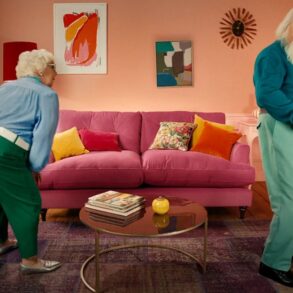Hair-straightener chemicals and uterine cancer: Who’s affected

Have you or a loved one used hair-straighter chemicals? If so and you subsequently developed uterine cancer, the chemicals may be the cause.
Chemical hair straighteners are big business, but they may be bad business. An all-new study, perhaps the largest to be published so far, provides more details about the link between hair straighteners and uterine cancer. Women are suing the companies that make the products and heavily market them to Black women.
Approximately 45,000 Black women were monitored for up to 22 years by researchers in the Boston University’s Black Women’s Health Study (BWHS). They found that postmenopausal women who used the chemicals more than twice a year or for more than five years had a greater than 50% risk of developing uterine cancer compared to those who rarely or never used relaxers.
Do you qualify?
If you or a loved one was diagnosed with uterine cancer after using hair-straighteningchemicals, you may be able to take legal action. If you were diagnosed with uterine cancer, you may be able to recover compensation for your medical expenses and other damages. In addition, family members of consumers who died from uterine cancer related to hair chemicals may have a wrongful-death claim and may be eligible for compensation.
Fill out the form on this page for more information.
Racial disparities
Boston University’s Black Women’s Health Study was established in 1995 to determine why Black women have higher rates of illnesses such as hypertension, breast cancer at young ages, diabetes, stroke and lupus. The overall study tracks the health of 59,000 self-identified black women enrolled since the beginning. “Our study suggests that moderate and heavy use of chemical hair relaxers may be associated with higher risk of uterine cancer among postmenopausal Black women. In addition, there are major racial disparities in uterine cancer. Compared to non-Hispanic white women, Black women have higher rates of aggressive subtypes of uterine cancer and are nearly twice as likely to die from their disease,” said Kimberly Bertrand, Sc.D., associate professor of medicine at Boston University Chobanian & Avedisian School of Medicine. An additional study, published in 2022, shows a link between hair-straighteners and uterine cancer among all age groups
“Black women are often underrepresented in health research … This study fills an important gap in knowledge about the potential health effects of hair relaxer use, which is very common in Black women,” Bertrand said.
Black women are burning for beauty
An extensive report by NBC News explained that hair relaxers contain chemicals that have a harmful effect on the endocrine system, which comprises the thyroid, ovaries, pancreas and adrenal glands. Damage to the endocrine system can affect hormone levels. Harmful hair relaxer chemicals, called phthalates and parabens, can be absorbed through the skin or inhaled, particularly if the scalp burns.
“If you have ever gotten a relaxer, you know it usually sits on for a little bit, and most people sort of alert their hair stylist that it needs to be washed out once it starts tingling or burning,” Jasmine Abrams, one of the authors of a 2023 study linking chemical hair straighteners to issues with fertility, told NBC, “and at that point, you are running the risk of burns.” If you are “running the risk of burns or any sort of injury with that type of chemical,” she added, “then you’re definitely increasing your risk for absorption. If you do that over time for many, many years, then it can, of course, become continuously problematic.”
Hair straightener cancer lawsuits
Consumers are taking hair relaxer claims to court. Revlon, L’Oréal and others defend the use of the chemicals in their products. “We do not believe the science supports a link between chemical hair straighteners or relaxers and cancer,” Revlon told Reuters. L’Oréal added that it is committed to offering the best products “for all skin and hair types, all genders, all identities, all cultures, all ages” and that its hair relaxers have a “rich heritage and history” originating with Black inventors and entrepreneurs.
Join a hair relaxer lawsuit investigation
Consumers who used hair-straightening chemicals and later developed uterine cancer may be able to take legal action for compensation for medical expenses and other damages. Their loved ones may also be able to take legal action and recover compensation. By challenging these large companies, consumers can make a difference in the regulation of dangerous products.
If you or a loved one used hair-straightening products and later developed uterine cancer, you may qualify to participate in a free lawsuit investigation.
Fill out the form on this page to see if you qualify for a free case evaluation.
This post was originally published on this site be sure to check out more of their content.








